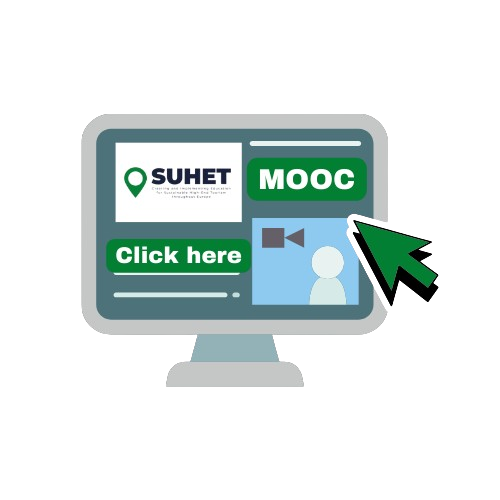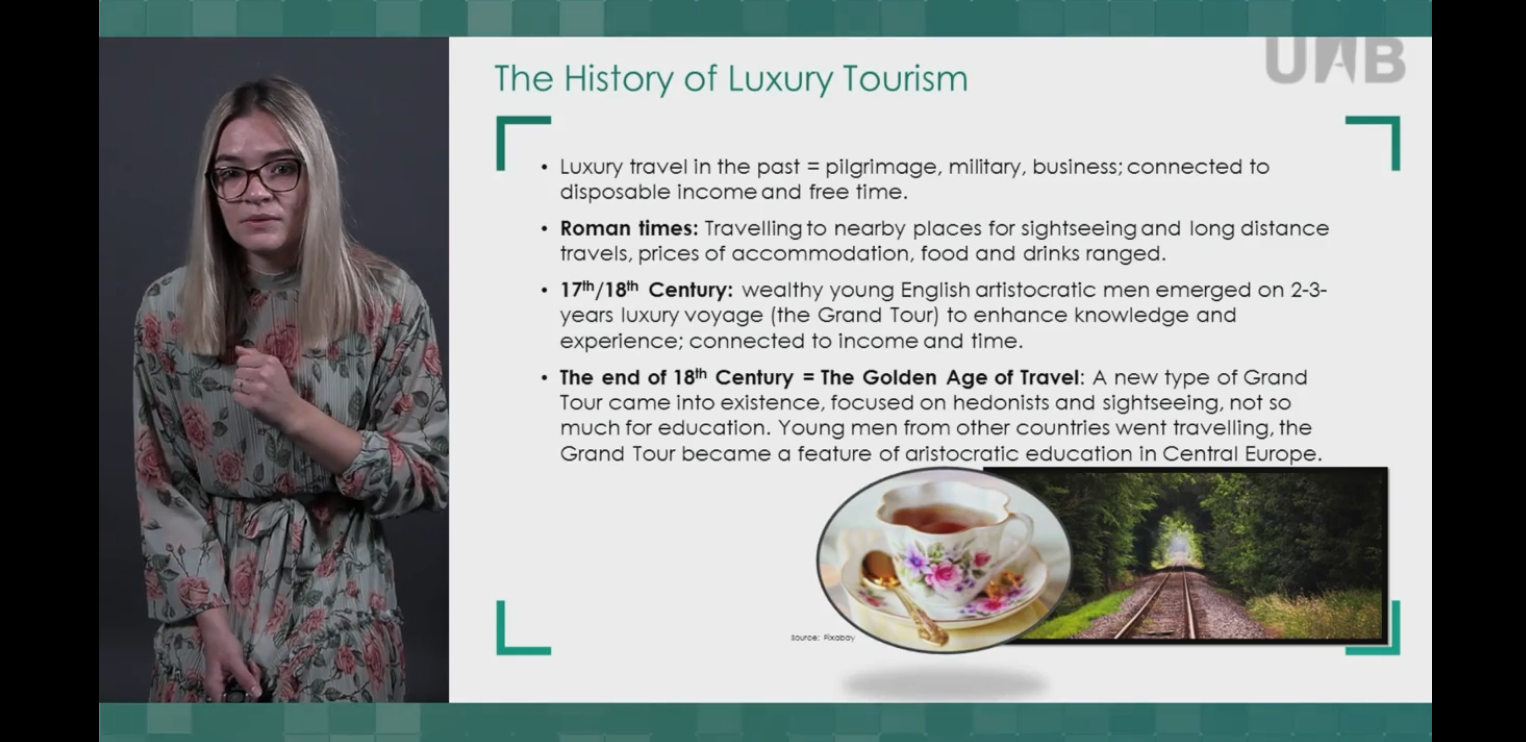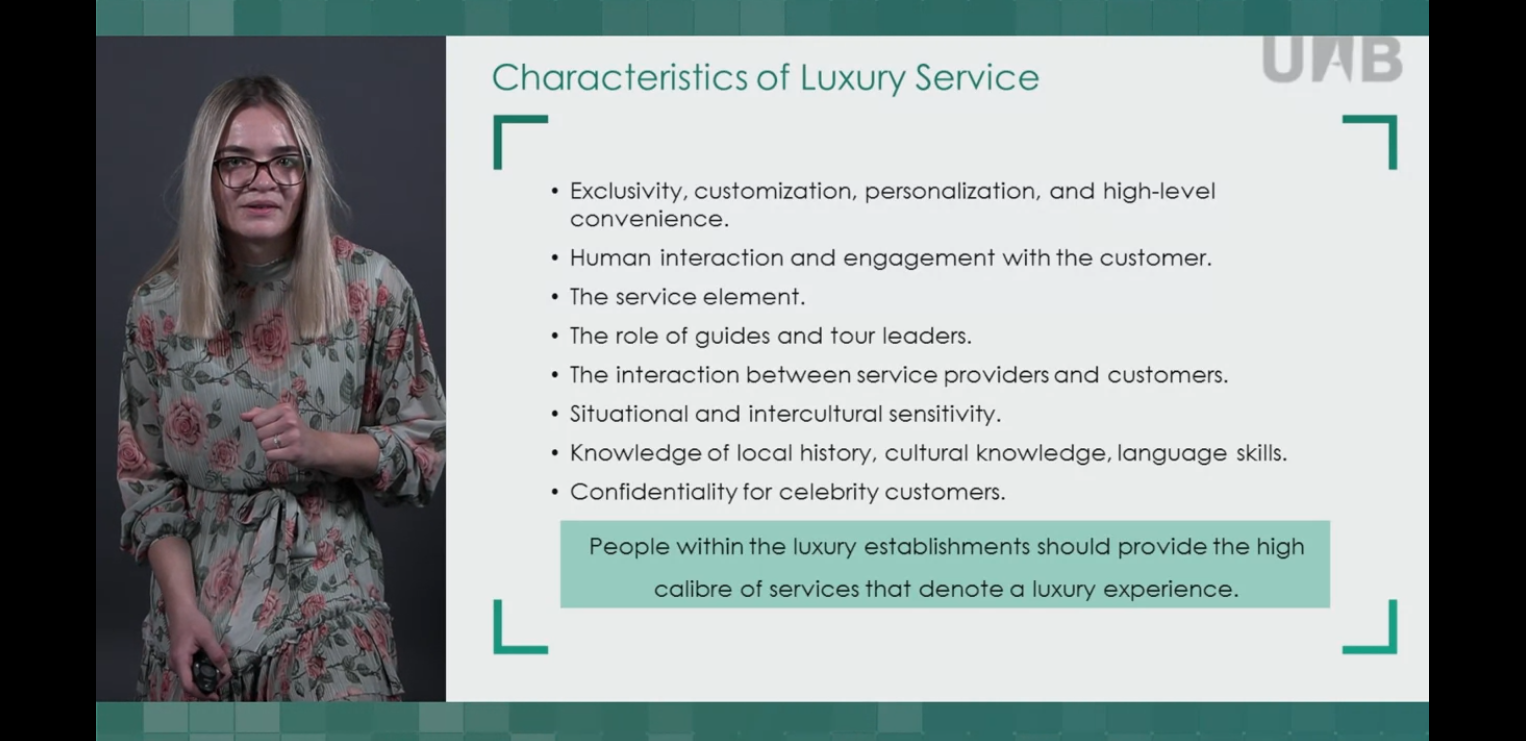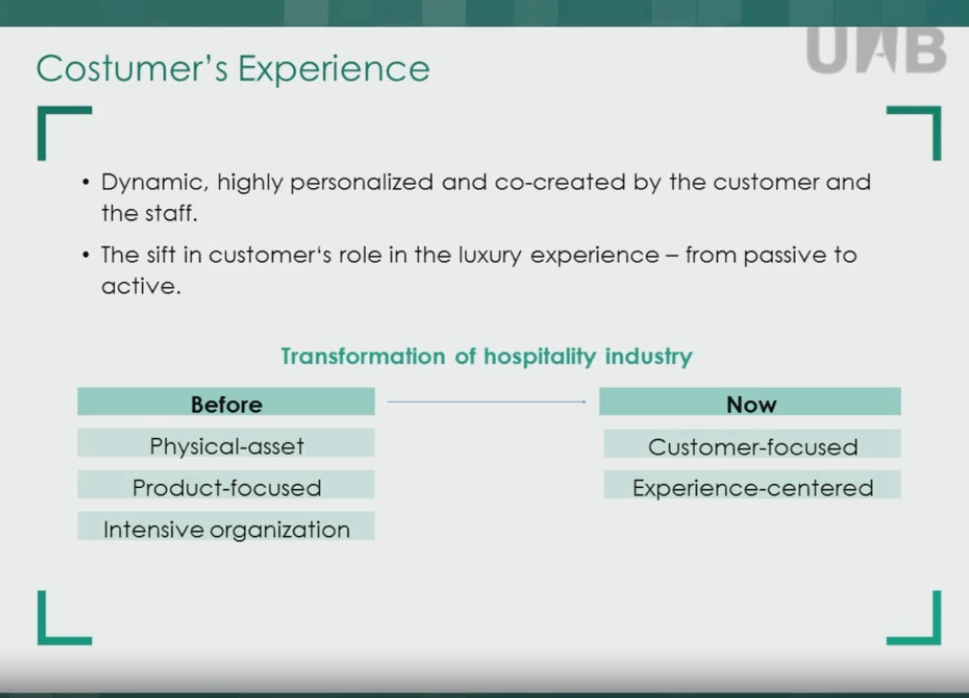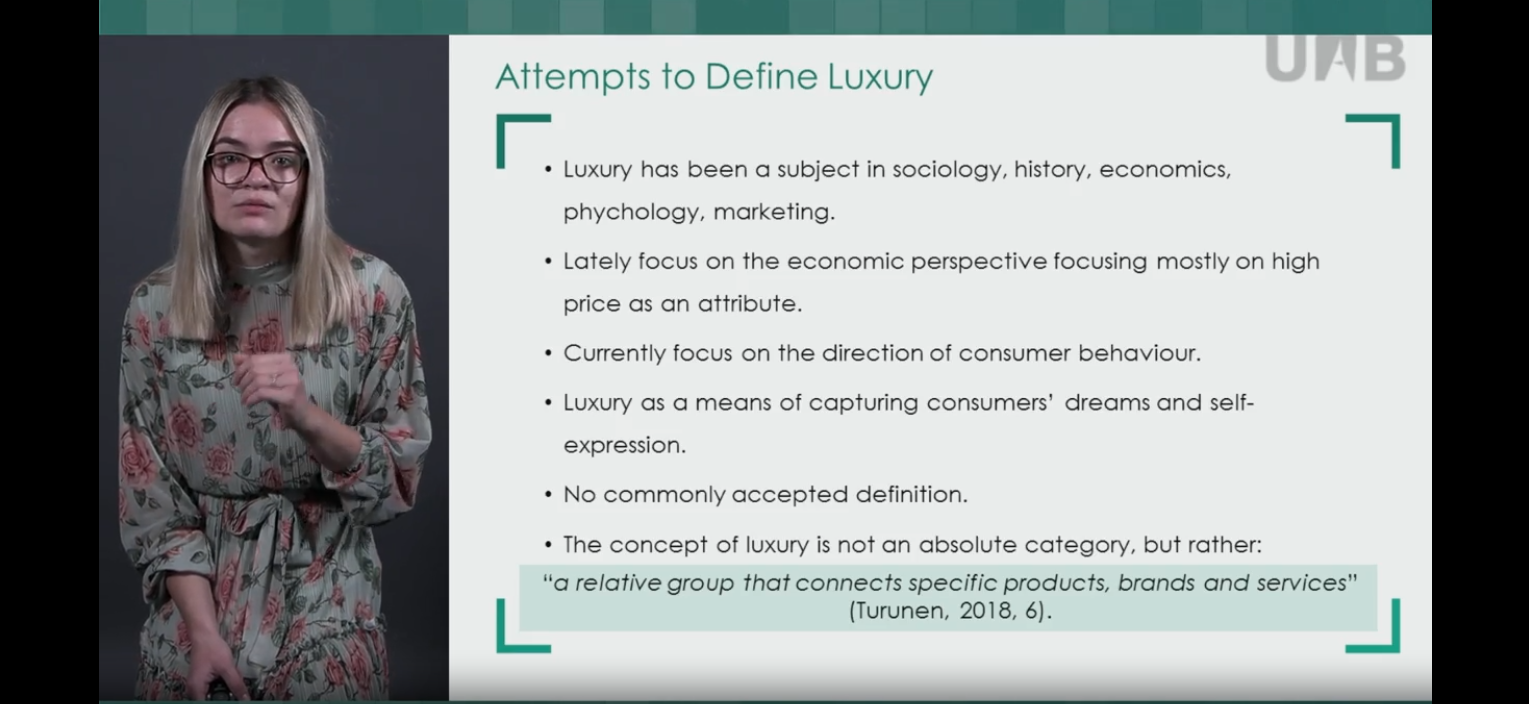RESULT 2: Development of MOOC tools
The “Sustainable high-end tourism” MOOC course developed within the framework of the project: “SUHET: Creating and Implementing Education for Sustainable High-end Tourism throughout Europe”, is aimed at:
-
Representatives of tourism sector
-
Tourism enterprises
-
Partner HEIs
-
Students/learners
-
Teachers
Module 1: Sustainable high-end tourism
In this module reviews the main elements in the sustainability aspect of delivering high-end tourism service. Special focus is placed on how a customer looks at those elements, how customers experience those products and services and how they can be managed, as the client’s perspective is essential. Managing high-end tourism is all about creating that added value for the customer, for the personnel, and for those companies.
Module 2: Introduction to High-end tourism
This module is dedicated to exploring the concept of luxury, its evolution throughout history, and its connection to societal changes, from symbolizing status and power to becoming a means of self-expression. The module delves into how luxury tourism has developed, from the exclusive Grand Tours of the past to the democratization of luxury experiences today. The changing perceptions of luxury in contemporary society are discussed. Luxury is no longer solely about owning rare items but about experiencing pleasure and emotion. The module explores how luxury experiences are reshaping the traditional concept of value creation and discuss the subjective nature of what constitutes luxury. A deeper view into the role of human interaction in luxury tourism is suggested. Learners will examine how staff selection, continuous training, and personalized service contribute to customer satisfaction. The dynamic and personalized nature of luxury experiences co-created by customers and staff is also reviewed.
Module 3: High-end tourism and the three pillars of sustainability
This module is dedicated to the study of sustainability and its connections with the high-end tourism sector. In this module the following questions seek their answer: What is sustainable development and how can it be implemented in the field of tourism? What are the three main pillars of sustainable tourism? In the specific case of high-end tourism, what actions can be done in order to have more sustainable luxury tourism? Specific attention is paid to the Global Sustainability Council Criteria for sustainable tourism as an example of a set of actions that can potentially be implemented at any high-end tourism company.
Module 4: Customer insight in sustainable high-end tourism
The rising purchasing power and standard of living have promoted the rapid growth of the global luxury travel market over the past few years. Sustainability is also an important element which has become a relevant issue for the luxury tourists. Therefore, customer insights of luxury tourists are drawing increasing attention from hospitality and tourism academics and practitioners. In this module, the learners will become acquainted with the definitions, benefits, and various types of customer insight in the context of sustainable high-end tourism. Learners will familiarize with the fundamentals of various customer insight tools and methods related to customer insight, consumer behaviour, and trends from a sustainable high-end tourism perspective. The learners will comprehend the significance of the value of the sustainable high-end tourism product for the customer and will acquaint with customer-driven marketing best practices and success stories.
Module 5: Marketing sustainable high-end tourism experience products and services
This module introduces the sustainable high-end tourism promotion and marketing, as well as its environmental and economic impact. The learners will acquaint with the sustainable high-end marketing concept and why it is appealing to tourism enterprises and operators; what is the sustainable marketing mix and how it applies to high-end tourism; also, what are the sustainable high-end tourism marketing tools and strategies that can be useful for local business development. The learners will study about international communication in the high-end tourism sector and will know the Dos and Don’ts in international communication, as well as the importance of foreign languages in promoting sustainable tourism. Finally, IT tools for more efficient marketing will be examined and the learners will be introduced briefly to the internet/online/web marketing, e-mail marketing; and social media marketing.
Module 6: Operational management of sustainable high-end customer experience
High-end services within the field of international services are challenging due to their temporal nature and constant search for excellence. This module will equip you with the skills to handle difficult customer inquiries and find solutions to their problems. Integrating the approaches within field of service management, i.e., service design etc., one can identify four important issues: performance measurements systems in service firms, managing innovation in a service environment, managing services across national boundaries and of course defining a service (concept) strategy. This module will delve into each of those issues through video, presentations and a syllabus text that should make learners able to tackle pitfalls within the field of operational management of high-end tourism.
Funded by the European Union. Neither the European Union nor the European Education and Culture Executive Agency (EACEA) can be held responsible for the content of this publication.
Project number: 2021-1-FI01-KA220-HED-000031996

